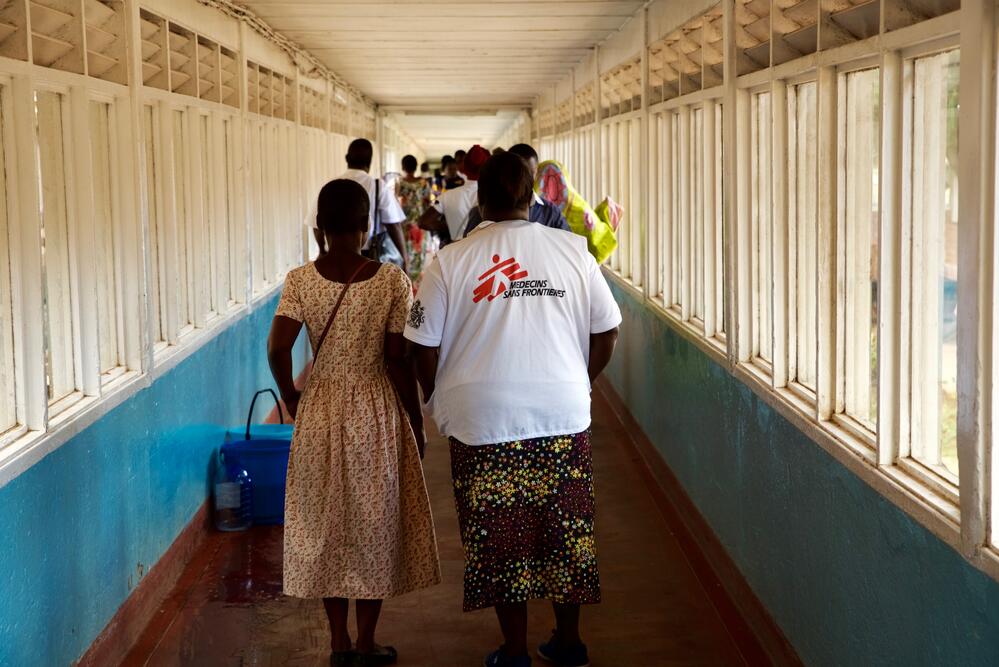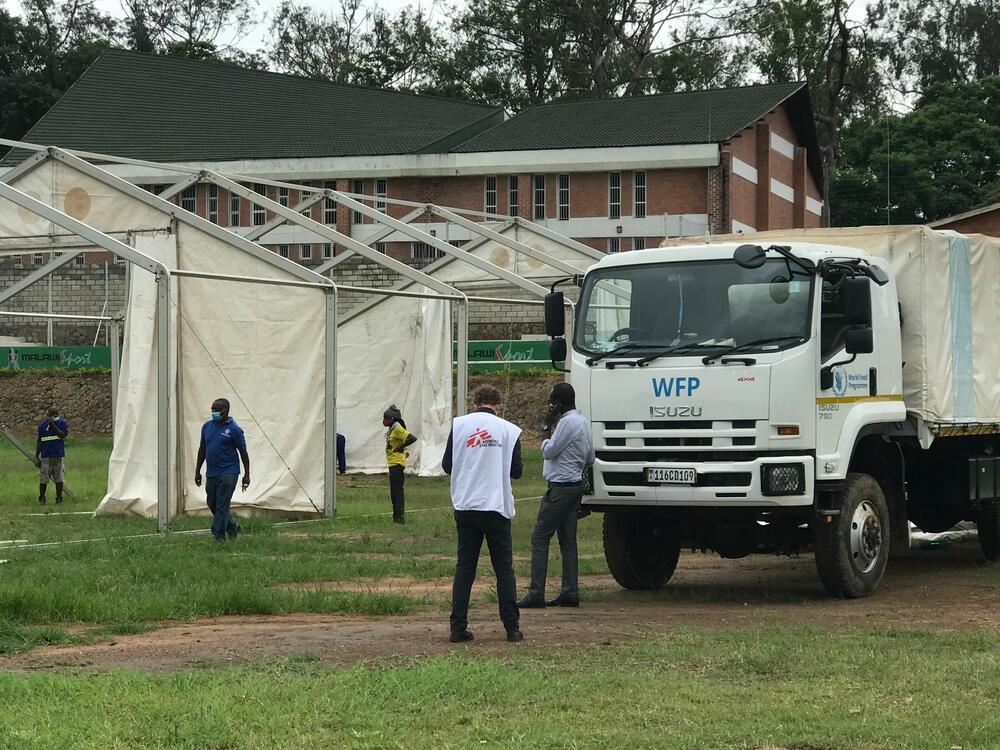Malawi: COVID-19 ‘second wave’ overwhelms healthcare system
Over the first few weeks of January, the number of positive COVID-19 cases in Malawi has doubled every four to five days.
The rapid rise in cases is putting the local health care capacity under huge strain, while access to vaccines is likely a few months away, warns Médecins Sans Frontières/Doctors Without Borders (MSF).
The hotspots of the outbreak are the two main cities in the country, the capital Lilongwe and Blantyre in the south, which accounts for a population of around two million people.
MSF has responded to a call by the health authorities in Blantyre for support and launched an emergency intervention to tackle the exponential increase in the number of severe patients in the area.
South Africa COVID-19 variant
The epidemic has been developing at a rapid pace in Malawi since mid-December. At that time, the majority of new cases was found among Malawian workers returning from South Africa, while today almost all the new cases are the result of local transmission.
“There is a very high probability that the COVID-19 variant 500Y.V2 identified in South Africa is responsible for this second wave," said Fabrice Weissman from the MSF COVID-19 response team in Malawi.
According to current scientific knowledge, this variant is 50 per cent more transmissible than the original strain, leading to a quick surge in the number of people needing hospitalisation.
“This number has doubled every week since the beginning of January. If the epidemic in the country follows the same pattern as in South Africa, we can expect the number of severe patients in need of hospital care to increase unabated up to mid-February.”

Help us prepare for the next emergency
“In order to contain the number of infections and deaths caused by this new wave of the disease, Malawi urgently needs access to vaccination”
MSF response
At the Queen Elizabeth Central Hospital (QECH) in Blantyre, which is the only public facility providing care for severe patients in the city, MSF teams have seen the number of severe COVID-19 patients hospitalised increase from 12 to 107 between 1 and 21 January.
This exceeds the hospital’s maximum capacity for COVID-19 patients, which is currently 80 patients. This puts severe stress on the facility, in particular with regard to human resources, medical equipment and consumables and oxygen supplies.
In all three areas, the hospital director has asked for emergency support, which MSF has begun to provide.
In addition to providing this support to the QECH COVID-19 wards, MSF is setting up an additional ward of 40 beds dedicated to COVID-19 patients. It will be fully equipped and staffed by MSF, in response to a call for help from the hospital Director and the District Health Officer.
The next objective is to improve the early referral of severe patients in order to maximise their chances of survival as there are indications that quite a few of the severe cases do not even reach the hospital and many people are probably dying at home.
“In order to contain the number of infections and deaths caused by this new wave of the disease, Malawi urgently needs access to vaccination,” said Weissman, “but unfortunately this is unlikely to happen before April 2021, and even then, only for a portion of its population.
"By that time, the epidemic might have already peaked and killed many who could have been protected by vaccination.”
MSF in Malawi
Malawi is a landlocked country in southeast Africa.
It has one of the highest prevalences of HIV in the world, with 9.2 percent of the adult population – one million – living with the virus in 2018.
Médecins Sans Frontières/Doctors Without Borders (MSF) is working to reduce HIV deaths in Malawi by facilitating earlier treatment and more advanced care.
We have been in the country since 1986. Over the years, our teams have provided a wide range of medical care and responded to natural disasters, including Cyclone Idai in March 2019.

